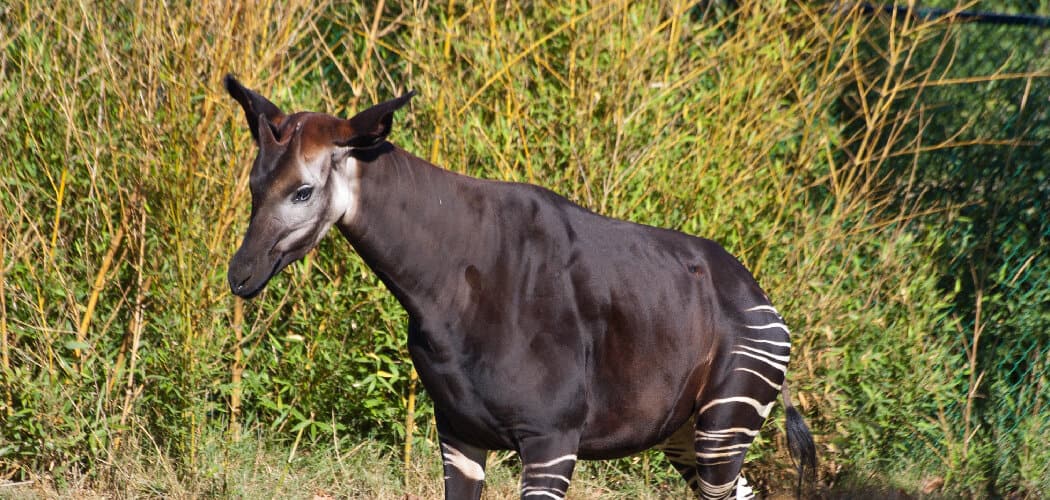Okapi is a spirit animal with a deep spiritual meaning. This enigmatic creature is known for its extraordinary hide and the black and white stripes that run the length of its body.
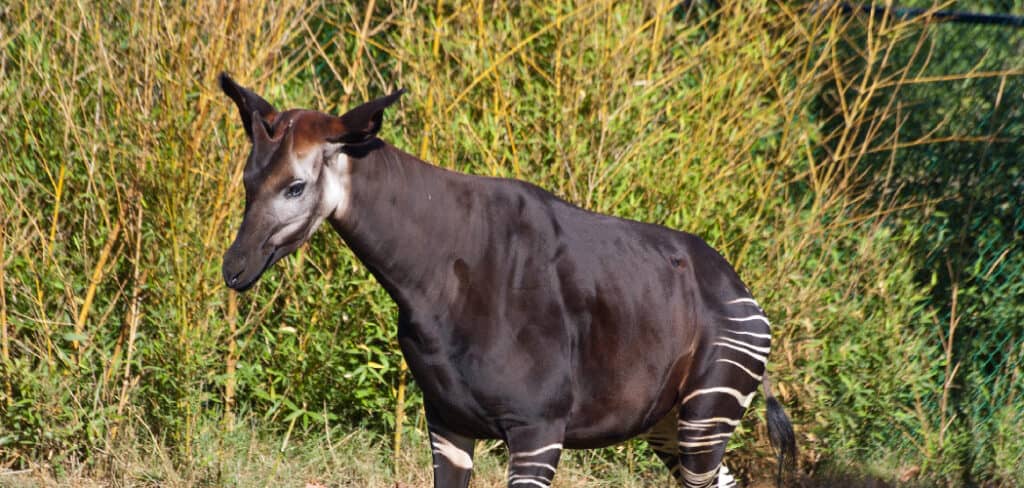
The okapi has been associated with many symbols and meanings, including a connection to the underworld, duality, camouflage, and adaptability. If you are drawn to this amazing animal, it may be a sign that you must explore some of these deeper aspects of yourself. So let’s take a closer look at the okapi spiritual meaning!
Okapi Symbolism and Meaning
Okapi Native American Symbolism
Native Americans have always had a strong connection to the natural world, and animals play a significant role in their mythology. The okapi is a little-known creature that inhabits the Congo basin in Africa, and it is said to possess both the strength of a zebra and the grace of a gazelle. For the Kongo people of central Africa, the okapi is a powerful symbol of fertility and life.
In their mythology, the okapi is said to be the guardian of the forest Spirit, and it is often depicted in cave paintings and carved into totem poles. The okapi is also a popular subject of tribal tattoos, as it is believed to bring strength and good fortune to those who wear it.
Okapi Eastern Symbolism
The okapi is a shy and reclusive creature residing in the Congo’s dense rainforests. With its striped hindquarters and long neck, the okapi resembles the zebra, leading many early explorers to believe that it was a hybrid of a donkey and a zebra. However, the okapi is more closely related to the giraffe and is the only living member of its family.
The people of the Congo basin have long revered the okapi, which plays an important role in their folklore and mythology. In some Eastern cultures, the okapi is seen as a symbol of purity and innocence, and it is often used in art and literature to represent these qualities.
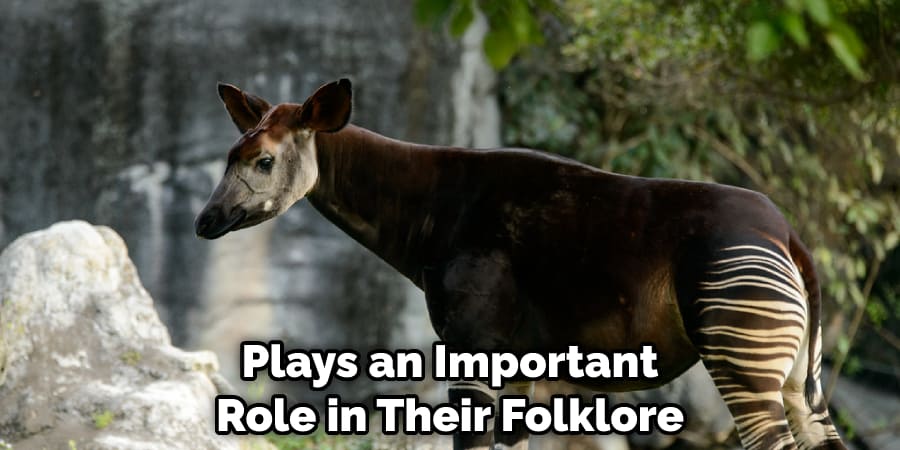
The okapi is also considered a powerful symbol of fertility and is often associated with motherhood and childbirth. As such, the okapi holds a special place in the hearts of many Africans, and its image can be found throughout the continent.
Okapi Christianity Symbolism
Christianity is a religion that is based on the belief in one God who created the world and all that exists in it. Followers of Christianity believe in the Bible as the authoritative source of religious teachings. The Bible contains numerous stories and symbols that Christians use to express their faith. One such story is the story of the okapi, which is a symbol of Christ’s love for all people.
In the story, the okapi is a creature that is half zebra and half giraffe. It is a gentle creature that lives in the forest and is loved by all who know it. The okapi symbolizes Christ’s love for all people, irrespective of their background or beliefs. Christians believe that Christ died for all people, regardless of their Sins, and that his death was an act of love.
The okapi story is just one example of how Christians use symbolism to express their faith. Christianity is a rich and diverse religion, with many stories and symbols that serve as expressions of its core beliefs.
Okapi Celtic Symbolism
The okapi is a rare and elusive creature inhabiting Central Africa’s rainforests. This remarkable beast has been shrouded in mystery for centuries, and its true nature has been the subject of much speculation. In recent years, however, the okapi has begun to emerge from the shadows, and we are now beginning to learn more about this fascinating animal.
One of the most intriguing aspects of the okapi is its Celtic symbolism. In ancient times, the okapi was believed to be a representation of fertility and new beginnings. As such, it was often used as a symbol of hope and revitalization. Today, the okapi still retains its powerful symbolic meaning and continues to inspire those who encounter it.
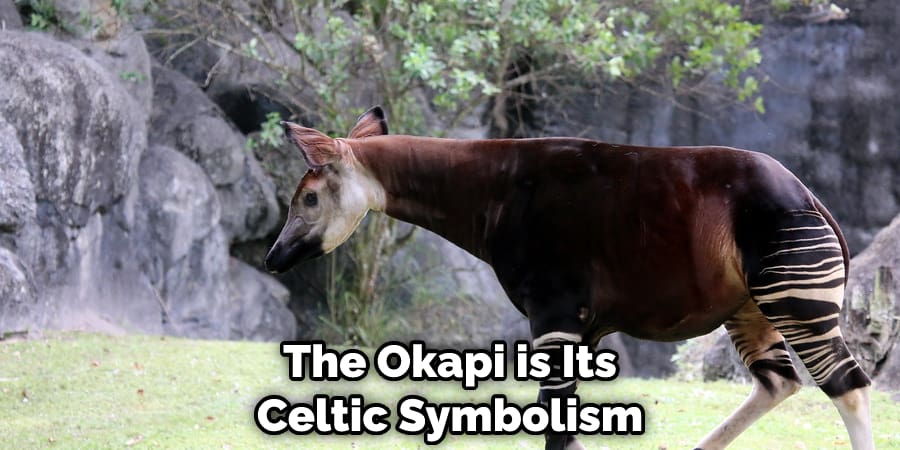
Okapi African Symbolism
In Africa, the okapi is a symbol of strength and endurance. The okapi is a forest creature that is striped like a zebra. It has a long neck and can run very fast. The okapi is an important animal in African culture. It is believed to symbolize strength, speed, and endurance. The okapi is also a symbol of good luck and fortune.
In some cultures, the okapi is considered to be a sacred animal. The okapi is an important part of the African ecosystem. It helps to keep the forest floor clean by eating leaves and twigs. The okapi is a gentle creature that is shy and timid. It is a beautiful animal that many people love.
You Can Check It Out To Quagga Spiritual Meaning, Symbolism and Totem
Okapi Spiritual Meaning
The okapi is a striking creature with its zebra-like stripes and long neck. Found only in the Congo Basin, this elusive creature has been revered by the local people for centuries. The okapi is thought to be a symbol of strength and resilience, as it can survive in dense jungle conditions.
In some cultures, the okapi is also seen as a bringer of good luck and fortune. For many people, the okapi represents the best of what the Congo has to offer – a beautiful and unique animal that embodies the spirit of the forest.
Okapi in Dreams
The okapi is an elusive creature native to the Congo Basin in Africa. Sightings of the okapi are few and far between, and it wasn’t until the early 20th century that scientists even knew that the okapi existed. The okapi has been described as a cross between a zebra and a giraffe, but it is actually more closely related to the giraffe. The okapi is a shy and reclusive animal, and it is thought that only a handful of people have ever seen one in the wild.
However, the okapi has another claim to fame: it is said to be a recurring character in the dreams of African tribesmen. The dreaming man will often see an okapi in his dream and interpret the okapi’s appearance as a sign from the gods.
Of course, the meaning of the dream will depend on the actions of the okapi in the dream, but it is generally believed that the okapi is a positive omen, bringing good luck and prosperity.
Whether you believe in the power of dreams or not, there is no denying that the okapi is a fascinating and mysterious animal. It’s strange appearance and elusive nature makes it all the more intriguing, and its role in African folklore only adds to its mystique. So the next time you see an okapi in your dream, take heed of its message – who knows, it just might bring you good luck.
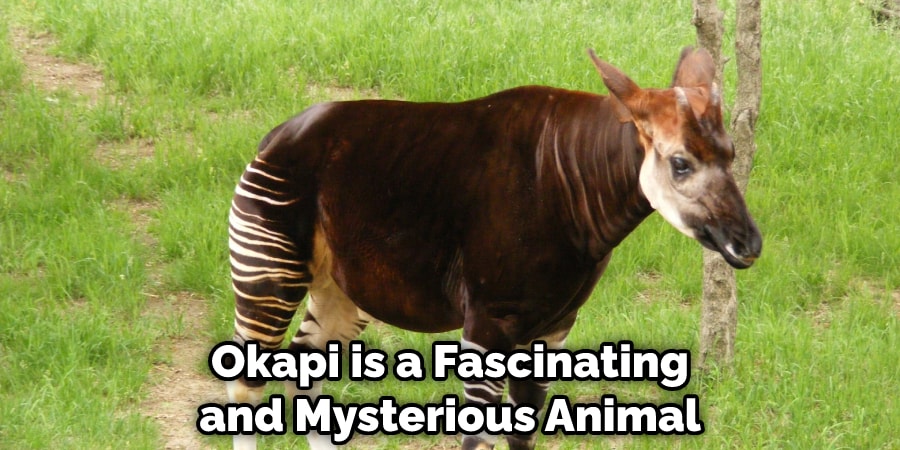
Okapi Encounters and Omens
In many cultures, okapis are considered to be lucky symbols. For example, in Africa, they are often seen as a sign of good luck and are said to bring peace and prosperity to those who encounter them.
In Chinese culture, okapis are seen as a symbol of strength and power. In addition, they are said to represent the forces of nature, and their presence is believed to bring good luck. Okapis are also considered a symbol of fertility and are often associated with birth and new beginnings.
In some cultures, okapis are even believed to have magical powers. It is said that they can cure diseases and bring rain to parched lands. Whether you believe in their magical powers or not, there is no denying that okapis are fascinating creatures. With their Striking stripes and gentle nature, it is no wonder that they have captured the imagination of people around the world.
Okapi’s Meaning in Mythology and Folklore
The okapi is a beautiful and unique creature with a chocolate brown coat and zebra-like stripes on its hindquarters. Native to the forests of Central Africa, the okapi has long been revered by the region’s people. In mythology and folklore, the okapi is often seen as a symbol of strength and power and a guardian of the forest.
The okapi is said to be shy and elusive but also wise and gentle. In many myths and folktales, the okapi is seen as a friend and protector of animals and humans alike.
The okapi is also sometimes associated with rainfall and fertility, as its striped coat is said to resemble the patterns made by raindrops falling on the ground. Regardless of how it is viewed, the okapi remains an important part of African mythology and folklore.
Okapi Totem Animal
Of all the animals in the world, the okapi is one of the most curious. This unusual creature is native to the forests of central Africa, and it is closely related to both giraffes and rhinoceroses. Although it shares some characteristics with these other animals, the okapi is a unique creature in its own right. For example, okapis have dark stripes that run down their otherwise reddish-brown bodies.
These stripes are thought to help camouflage the okapi in its forest home. In addition, okapis have extremely long tongues, which they use to strip leaves from branches and clean their eyes and ears.
Unfortunately, okapis are also known for being very shy and reclusive animals. As a result, they are rarely seen by humans. However, those who are lucky enough to catch a glimpse of an okapi in the wild are sure to be amazed by this incredible creature.
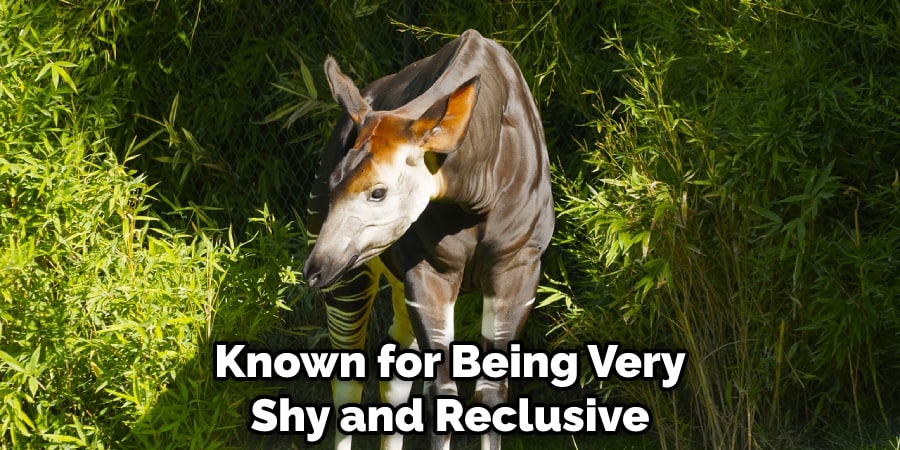
Conclusion
The okapi is a powerful spiritual symbol that can teach us many important lessons. Its gentle nature reminds us to be kind and compassionate, while its fierce determination inspires us to pursue our goals with tenacity.
The okapi also represents balance and harmony, reminding us to seek these things in our own lives. When we embody okapi’s qualities, we can achieve great things. Thanks for reading our post about the okapi spiritual meaning.
You Can Check It Out To Stag Beetle Spiritual Meaning, Symbolism and Totem

